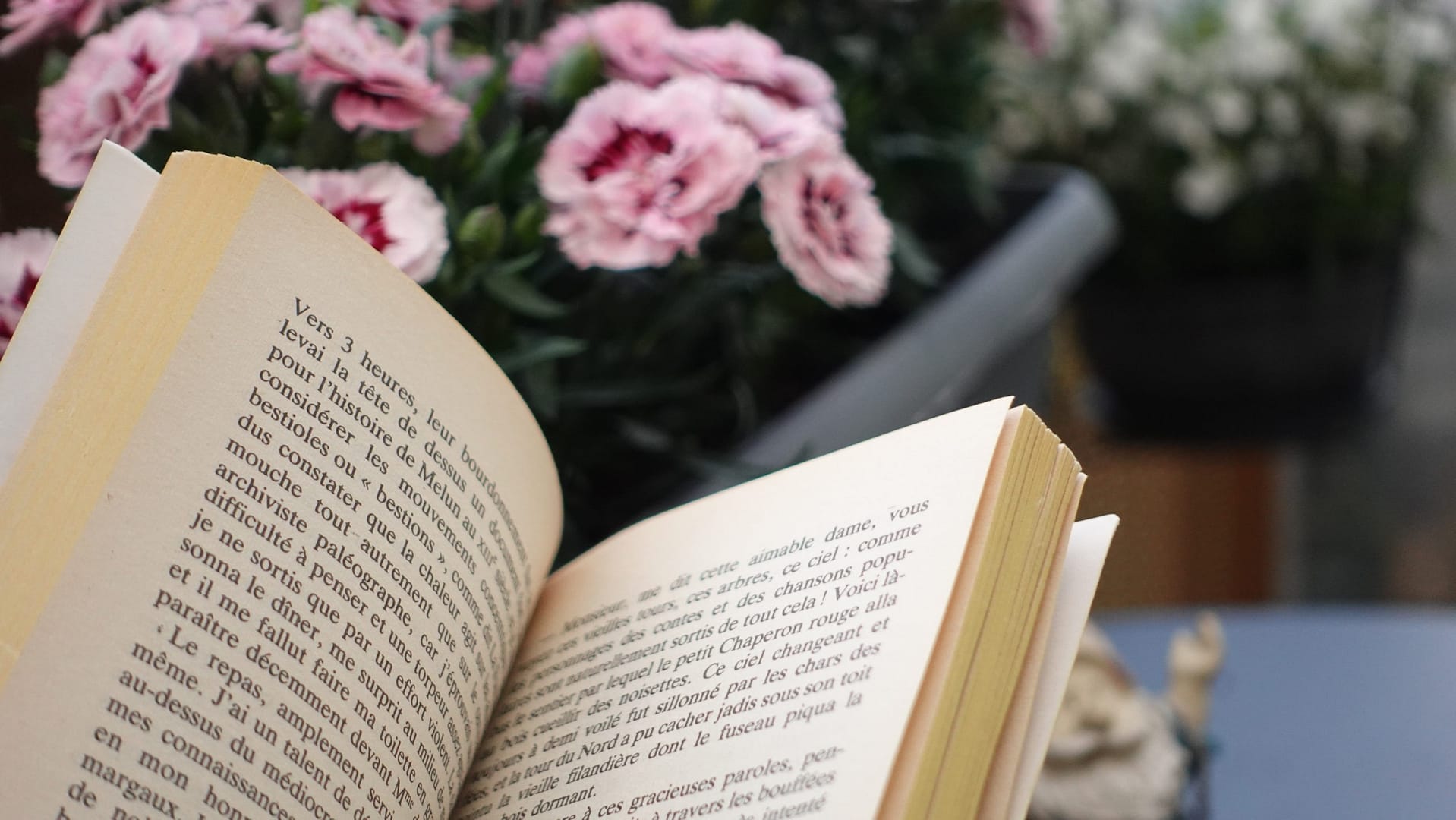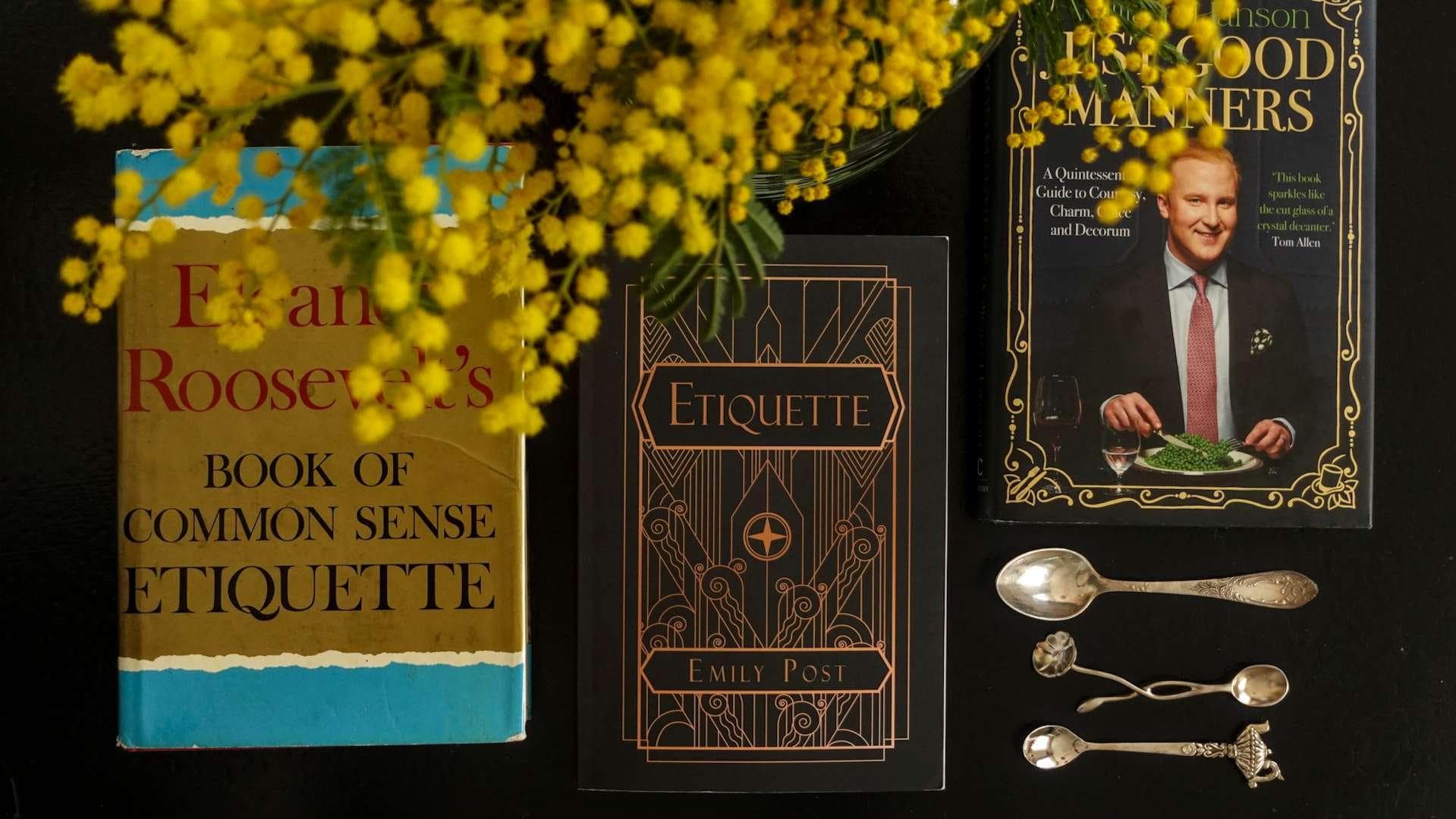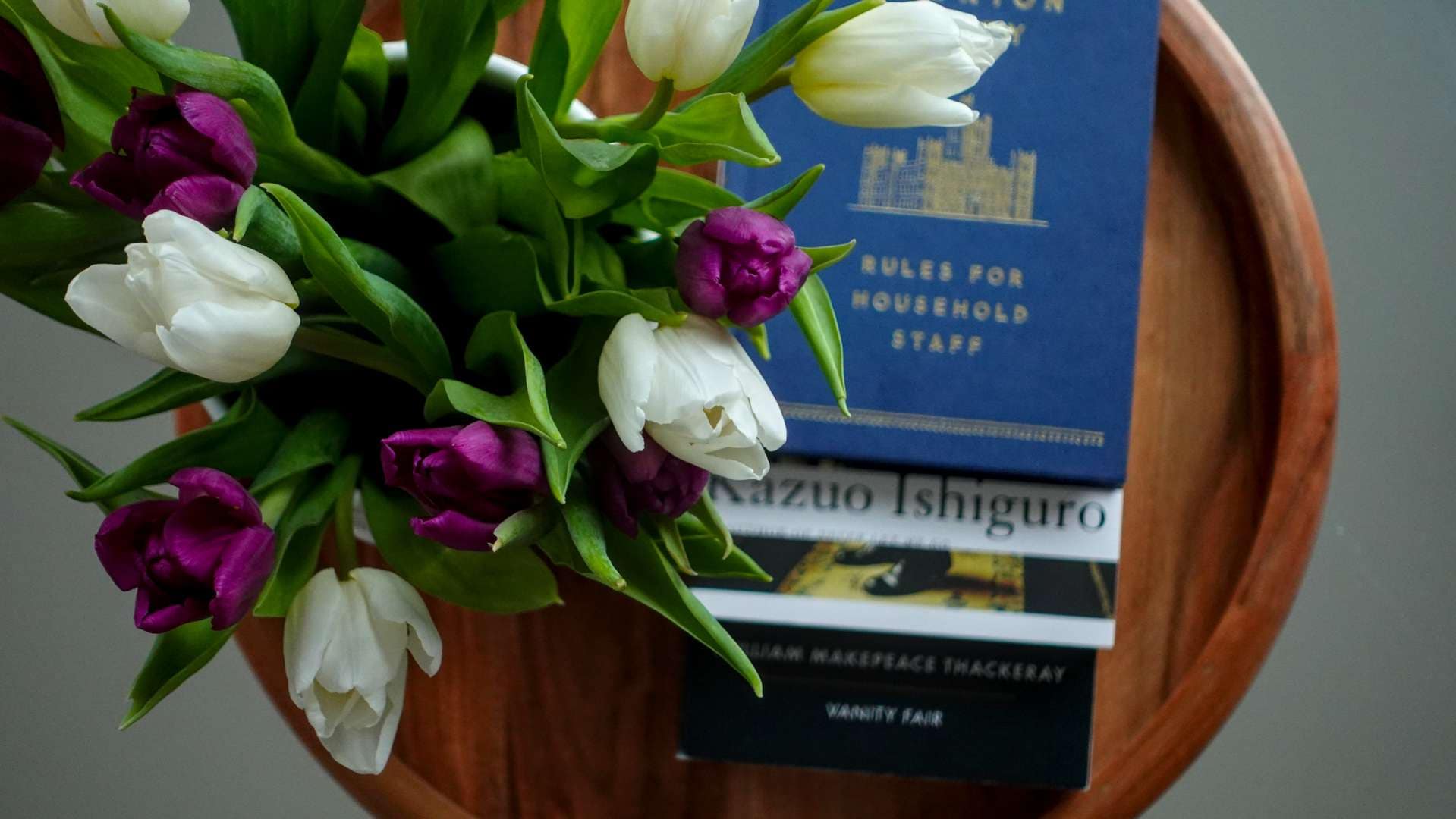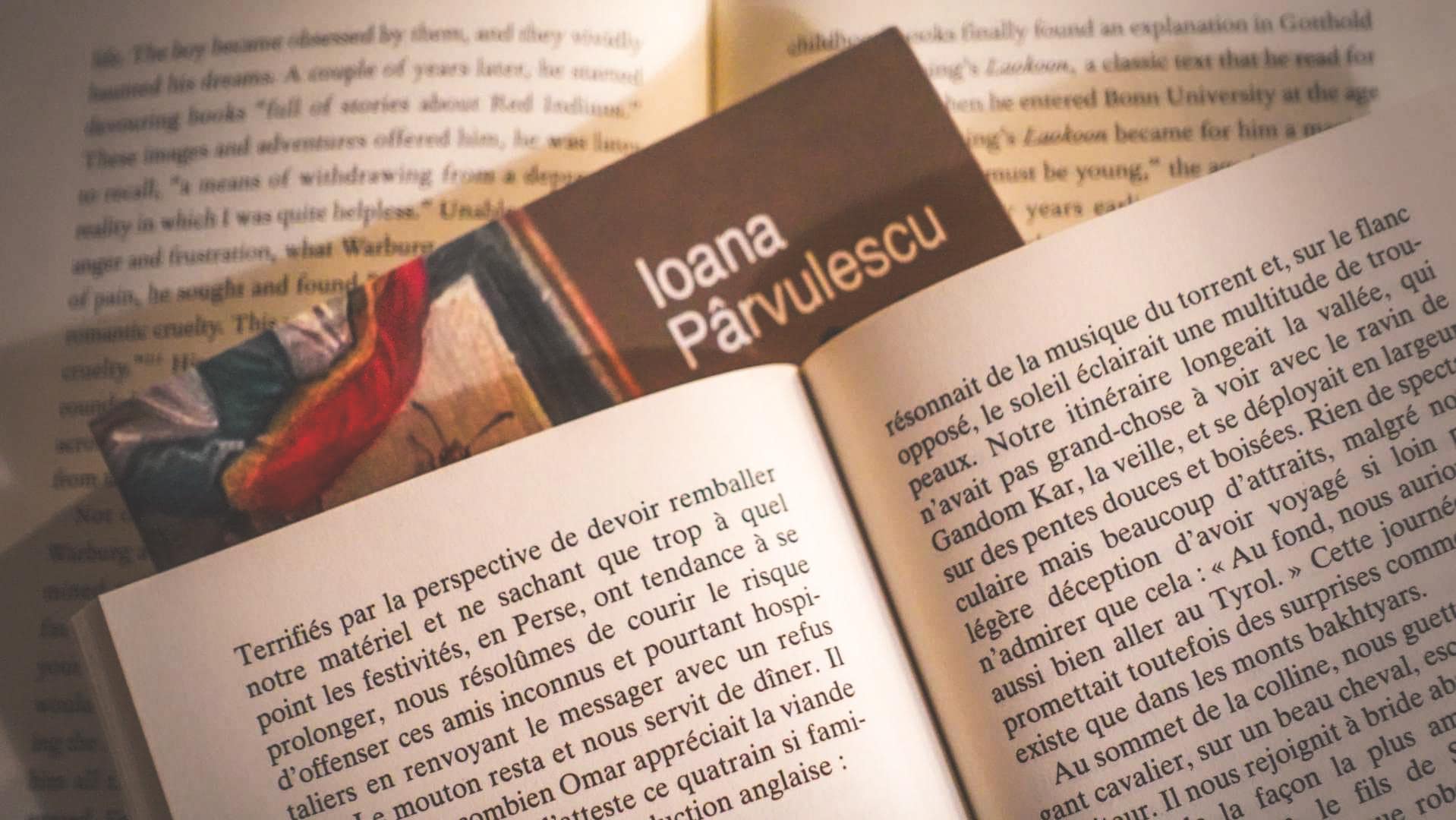Hello friends ! Welcome back to The Ritual of Reading.
June is upon us, it’s practically almost gone and I feel the summer speed taking me by surprise. It seems just yesterday I was sharing my timid first steps towards gardening, and all of a sudden I have a balcony in full bloom. It’s still a work in progress, as are all balconies and gardens I suppose, but I have finally reached that point where the pain was worth the gain. And that’s almost what I felt while reading this month’s Nobel Laureate.
I haven’t talked about my reading slumps here before, but these last few weeks I felt I understood a few more things about myself through my struggles connected to reading. So here it is, confession time !
As many of you will remember, I had a little break in May. It was a two week holiday where I had my two best friends over and we mixed some Parisian touristy stuff with some traveling around France. It was an amazing time and I actually felt my virtual image stock go up. Seeing new things or old ones through fresh lenses, it was extremely enriching. But it was also a rythm I’m not used to having. And to be honest, as fascinating as it was, I couldn’t live like that for weeks on end. I’m always challenging my memory to remember if I was always like this or if this is a getting older kind of thing, but yes, I need my down time, I like having lazy days and I especially enjoy my alone time.
So what happened is that after my holiday, that also meant a break from reading because the schedule was too intense, I came back to my normal lifestyle. Going into the office 5 days a week, commuting, doing the regular household stuff on the week-ends, and between all that, getting back on track with reading. And just to be clear, when I say back on track, I don’t mean it as a chore, I actually was super excited to have the time to read again.
Picked up the first book, my mind wandered off. Got up and did the dishes. Picked up a second book at night in bed, read the same page 4 times and still had no idea what I was reading.
Next day, the same. And the day after that.
I know, it sounds familiar, every reader has slumps. But then I picked up my Nobel Laureate choice for June, in order to prepare this very video. It was Anatole France, and his famous novel Le crime de Sylvestre Bonnard / The crime of Sylvester Bonnard. This was a re-read, since my first meeting with this novel happened more than 20 years ago, and I wanted to refresh what were pretty happy memories. The struggles were the same, but now I started to resent the book as well as my mood. It felt like the plot was weak, like the details were crowding the story and the style felt too outdated. This wasn’t the book I loved all those years ago. Could it be that I had changed so much ?
It wasn’t fair to the book, my reading slump began way before I picked it up, but something was not quite the same. So I started analyzing my other behaviours : I couldn’t watch a YouTube video until the end, or if I did it was at double the speed, I was doing 4 loads of laundry in a day, I think at some point I washed already clean clothes, I simply was unable to stand still. And that’s when I realised : my reading slump came from this artificial need of speed that lingered after two exceptionaly active weeks. A kind of inertia if you like… and reading was simply too slow for me to enjoy it. Even more so, a classic like Anatole France was from such a different paced world, it’s no wonder his writing seemed boring.
Once I noticed it, getting over it was easier than I thought. Every time I felt my mind wonder off while reading, I said to myself : there is nothing else you need to do right now. You have no other obligations. This is the only thing of importance right now. And suddenly, I began noticing the elegance of the writing, the slow pace seemed to compliment a choice of words more like a walz than a firey chachacha. And when I got to the most famous quote of all of Anatole France’s works, I felt blessed for being present and noticing it. It said :
To imagine is everything, to know is nothing at all.
Anatole France was a French poet, journalist, novelist and prolific member of the French Academy. He was awarded the Nobel Prize in Literature in 1921 :
“in recognition of his brilliant literary achievements, characterized as they are by a nobility of style, a profound human sympathy, grace, and a true Gallic temperament”
Nobel Prize Jury motivation
And maybe I needed this second read of his novel, in order to recognize that very profound nobility of style the jury awarded. The two parts of the book are connected by the presence of the same main character, the historian and philosopher Sylvestre Bonnard, and his adventures in locating and purchasing a rare manuscript. For me, the plot was secondary. What I appreciated most was the image of the wiseman, the person that, through an immense knowledge, can formulate a global vision of the world, while keeping a natural curiosity for the ever evolving society and its mysteries. But I do have to admit that I had to slow down quite a bit in order to notice this.
I can imagine this same thing happens to many readers around the globe, with the classics of their own culture or of universal literature. I think it’s the most common flaw I hear in book reviews : the pace of the story was too slow, it wasn’t engaging enough. Maybe it’s not our lack of literary culture that’s at fault, but simply an ever expanding gap between centuries, discrepancies that need bigger and bigger efforts to be put into context, and then understood. There was a phrase in the novel that resonated with my analytical mood :
L’artiste qui ne voit les choses qu’en laid n’a pas su les voir dans leurs rapports avec leur harmonie
The artist who only sees the dark side of things, does not know how to look at their connection with their harmony
This doesn’t mean I’m going to love every single classic out there, but my June encounter with Anatole France has shed some light onto my own reading habits, struggles and sometimes solutions.
Thank you for bearing with me until the end, I would love to know your view on the subject, no only reading slumps but especially classics and your way of receiving a message that was conceived for a very different audience.
Until next time, enjoy your reading and your rituals !









